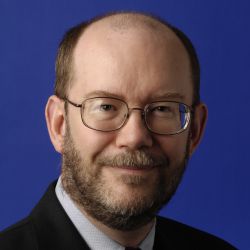
I was a young assistant professor, attending an extended family event where one meets cousins, nieces, nephews, wives, husbands, and people whose familial relationship you only vaguely understand. It was one of those times when one relaxes, enjoys family, and makes small talk with people one sees only at such events. It was wedding or a holiday–I no longer recall the location or the details. One memorable aspect of the event remains, however.
A member of my extended family asked if I would be teaching during the upcoming summer. “No, I do not teach classes during the summer,” I replied. A perplexed expression played across the questioner’s face, with the implied successor question very clear. What, pray tell, does a professor do in the summertime?
Least I be viewed as an ivory tower dilettante with a questionable work ethic, I hastened to explain that I spent the summer devoting all my time to research. In turn, this prompted another question, “What does that mean?”
Realizing that I should have anticipated that response, I paused to consider my reply, with images of university life flashing through my mind. Do I explain grant proposal preparation and annual reports? Should I describe meetings with graduate students and reviewing thesis drafts? Or were descriptions of research conferences and hallway discussions more apt? Might recourse to memories of secondary school lectures on the scientific method and experiments do the trick? No, I decided. A more personal answer was required.
“In the summer, the government pays me to think. If I believe I have a good idea, I am supposed to write it down,” I finally responded. It was the truth, encapsulating the fact that I had active research grants and that one of the tangible outputs of research is scientific publication. Yet, it was also a bit flippant, for it failed to capture all the nuance and complexity that academic research truly entails: the thrill of discovery, the camaraderie of a research team, the friendly intellectual competition, and the many hours of hard work.
After a moment’s reflection, the family member smiled and asked jokingly, “How do I get one of those jobs?” “It’s harder than it sounds,” I replied.
Indeed it is. I am a older and (I hope) a bit wiser now, and I would now give a much more nuanced answer to the question. Research challenges us to pose new questions, choose research avenues carefully, and be frugal and wise stewards of the financial trust invested in us. It means nurturing each new generation of students in the ways and methods of discovery, shaping national and international research agendas, and serving society by transferring promising ideas. Finally, it means explaining why research is important.
And, yes, it means thinking clearly about the future.



Join the Discussion (0)
Become a Member or Sign In to Post a Comment